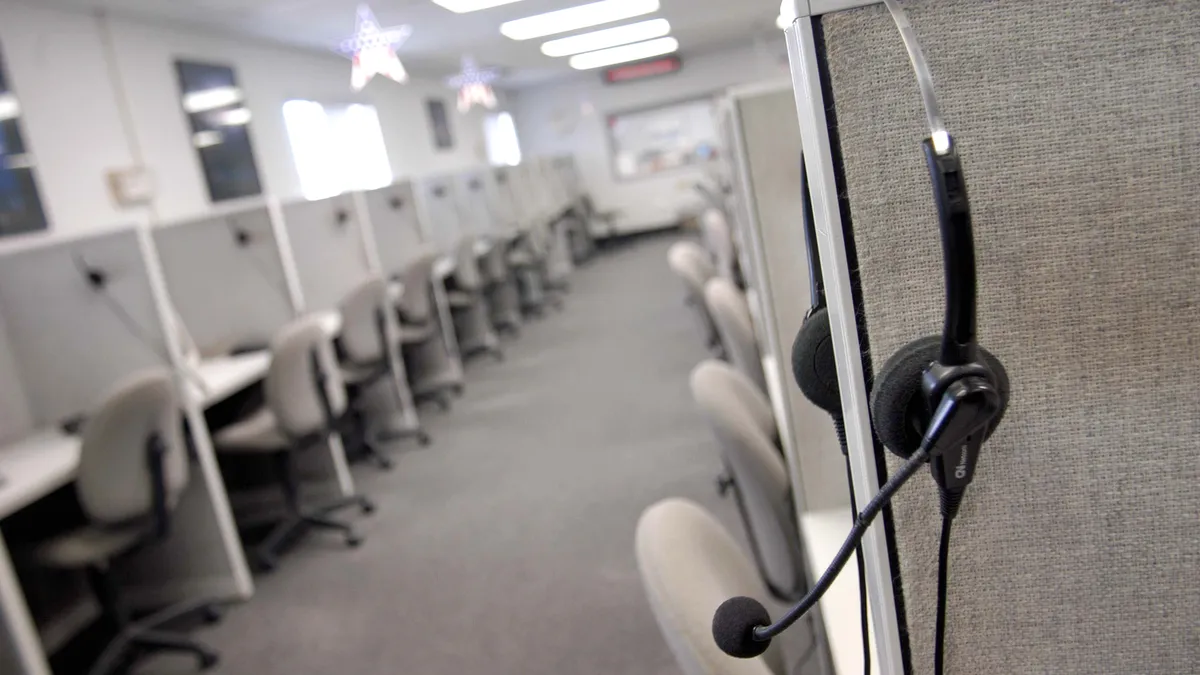Discourse in the HR community started off with a bang this year, thanks to a benignly-crafted, but still inflammatory headline: Young employees are losing out 'on a lot' by not going to the office, business experts say.
To recap, Morgan Smith for CNBC's "Make It" vertical wrote about how remote work remains an integral part of U.S. work culture, yet many qualified people think the hybrid work model is detrimental to younger workers. Jamie Dimon, CEO of JPMorgan Chase, said remote work is not the move for young professionals "who want to hustle." Tim Armstrong, ex-CEO of AOL, said his biggest piece of advice for young professionals is, "Go back to work."
A Wharton School of Business professor and McKinsey & Co. talent expert agreed on the pitfalls of working from home — mainly, reduced framework for serendipitous co-worker connections. As an HR journalist, the article was pretty inoffensive to me. (I just checked and I've quoted at least two sources who used the word "serendipity" to lament the loss of in-person interactions.) Still, the article struck a nerve with the netizens of twitter.com. Reaction pics, snark and cuss words abounded.
Gosh, what a shame. I loved my tiny, uncomfortable cubicle so much when I was young. I loved it when my boss would tell me not to sigh. Loved the shitty coffee, bagged lunches, doing my business in public bathrooms. I only went freelance because I loved cubicle life TOO MUCH.
— AnnaMaria Stephens (@annamaria1word) January 7, 2022
I agree with many of the prevailing replies to CNBC's tweet. I will gladly snap for people of all ages who have pointed out the benefits of remote work, including less worry about commuting and its costs, about food and its costs, about child care and its costs, about microaggressions and their toll. I won't touch all the shady comments about older generations and how the shift to virtual offices may have deflated their egos. What I will state is the truth, which is that I personally haven't missed out on much by being out of the office.
I started my career as an HR Dive reporter in May 2021. While I was a pandemic-era hire, this wasn't my first remote job. In fact, I had been working from home (and cafés, libraries, restaurants and trains) since 2018. And yet, there was a marked difference in my work experiences. I'm a straight-shooter when it comes to my professional life and I'll tell you this much: In my former job, I really only spoke to two people (my boss and my boss' boss) for the vast majority of those two years.
In total, my work provided me the opportunity to speak to five people, max. I was never introduced to any of my fellow writers — I had to stalk them via social media and strike up a friendship with them through Instagram. My sources were the closest incarnation of "work friends." I was never invited to an editorial or content planning meeting. Any company news was funneled through my editors and polished down to a brief newsletter every month or so; sometimes, us writers would see updates reported in Forbes or Business Insider first.
Meanwhile, since Day One at Industry Dive, my work life has been flush with connection, opportunities for community-building and mentorship. I'm not just talking to my boss and my boss' boss — I'm talking to fellow reporters and editors on my team and at other Dives. I'm talking to engineers and designers. We're talking about journalism stuff, but also Star Wars and skincare, celebrity crushes and our immaculately curated playlists, too.
What has bolstered this digital work atmosphere is the understanding that no one will be forced to work in-office any time soon, but that the option is there for those who want to take advantage.
I've interviewed what feels like a million different HR pros about remote work and I imagine I'll interview a million more. So I took to the streets of Twitter for the worker perspective on the CNBC debate. "Although there are some cons to working from home — such as less physical social interaction and team-building tasks that keep the cohesiveness together — I feel that younger people are not missing out," Shanise Spruill, a veteran and holistic health professional, told me via direct message.
Employer: why is no one wanting to work?!
— Join your local grassroots organization ASAP (@chunky_dogge) January 7, 2022
Also employer: pic.twitter.com/sqtRNAdfv1
Coming through with the health perspective, Spruill added that now workers can now manage their time and energy in a way that genuinely benefits them. "Working from home allows them to work in an element in which they are most comfortable," she added. "That comfort allows them to show up with positive energy and have a better work-life balance, with less negative environmental effects."
Jen David, founder of resume writing and editing agency CV Shed, explained her perspective as someone who worked remotely for the past 11 years. "I believe it depends more on the personality of the individual than their age," she said. "Some people thrive working alone and others need input from others. There's no one-size-fits-all. Personally, I love it and wouldn't have it any other way — it's helped my career, not hindered it."
Dana Freeman, a freelance journalist who has written for CNN Travel, Fodor's and Lonely Planet, said she felt that younger professionals were missing out with remote work. Her main concern was IRL mentoring from "seasoned" coworkers.
"When you first start your career, so much is gleaned by speaking to the people in your office. Gone is the casual pop-in or knock-on-an-office-door to ask a question," she said. "You pick up a lot from the unscheduled, happenstance, face-to-face meetings in an office." Working from home means less of a reprieve from "your small, likely shared living space," she added.
"Plus, you meet so many people and become friends with your co-workers because you're with them 40-plus hours a week. That doesn't happen over a conference call," she said. "I actually met my husband at work when I was 23. We've been together for 30 years. That would've never happened if I only saw him over Zoom."
If you don't have disabilities or are an extrovert, I can see how working from home would feel bland, colorless or boring. And in many ways, I do think Dimon and Armstrong are right: Younger professionals would benefit from returning to the office, insomuch as many people in middle management and the C-suite harbor an unapologetic bias against remote workers. What I've gathered through interviewing HR professionals for the past eight months is that remote prejudice totally exists.
Perfectly capable and even distinctly remarkable employees may not get the praise, promotion or raise that they deserve because their managers perceive them to be lazy or antisocial. As far as the social element goes, I don't think that camaraderie has to be lost because of a lack of shared geography.
In my professional opinion, I think managers and HR teams can drum up positive results simply by leading with empathy and putting their workers' well-being first. In my personal opinion, I think that the pandemic catalyzed a much-needed shift to prioritizing worker well-being, community and belonging. All employers need to do is be willing to listen and open to adapting.





















